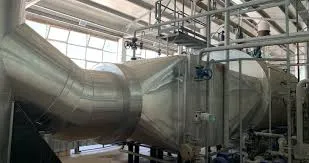ce certification steam boiler for textile industry
CE Certification of Steam Boilers for the Textile Industry Ensuring Safety, Efficiency, and Compliance
The textile industry is one of the most significant sectors globally, characterized by its extensive use of machinery and significant energy consumption. Among the critical equipment used in this sector are steam boilers, which provide the necessary steam for various processes, including dyeing, finishing, and garment manufacturing. However, the efficiency and safety of these boilers are paramount, necessitating stringent regulations and certifications. One such essential certification is the CE marking, which signifies conformity with health, safety, and environmental protection standards within the European Economic Area.
Understanding CE Certification
CE certification is a mandatory conformity mark for products sold within the European Union (EU). It demonstrates that a product meets the EU’s safety and environmental requirements. For steam boilers used in the textile industry, obtaining a CE mark is crucial as it assures users and regulatory bodies that the equipment adheres to specified standards and is safe for use. The certification process includes rigorous testing, documentation, and an assessment of manufacturing practices.
Importance of CE Certification for Steam Boilers
1. Safety Assurance The primary purpose of CE certification is to ensure safety. Textile plants utilize steam boilers that operate under high pressure and temperature, posing risks if not properly constructed or maintained. CE certification mandates that these boilers fulfill strict safety standards, thus protecting workers and the facility from potential hazards, such as explosions or leaks.
2. Environmental Compliance The textile industry is under increasing scrutiny regarding its environmental impact. CE certification requires that steam boilers meet specific environmental regulations, thereby minimizing pollutants and optimizing energy consumption. This not only helps manufacturers comply with laws but also supports their sustainability goals.
3. Market Access For textile manufacturers looking to sell their products within the EU, CE certification is essential. The absence of this certification can lead to substantial barriers, including fines or denial of market access. By ensuring that their steam boilers are CE certified, manufacturers can demonstrate compliance, thereby facilitating smoother trade and market expansion.
4. Quality Assurance The CE certification process helps ensure that steam boilers are of high quality and manufactured according to standardized practices. This contributes to operational efficiency, reliability, and longevity of the equipment, which ultimately reduces operational costs and downtime for textile manufacturers.
ce certification steam boiler for textile industry

5. Consumer Confidence For companies in the textile industry, having CE-certified machinery enhances their reputation and builds trust with consumers. It signifies a commitment to safety and quality, which can be a significant selling point in a competitive market. This confidence can translate into increased sales and a stronger market position.
The Certification Process
The process to obtain CE certification for steam boilers typically involves several steps
1. Risk Assessment Manufacturers must identify and assess potential risks associated with their boilers, ensuring that all safety aspects are addressed.
2. Testing and Certification The boilers undergo comprehensive testing in accredited laboratories to verify compliance with applicable EU directives, such as the Pressure Equipment Directive (PED) and the Machinery Directive.
3. Technical Documentation Manufacturers must compile detailed technical documentation demonstrating compliance with relevant standards, including design specifications, risk assessments, and testing results.
4. Continuous Compliance After obtaining CE certification, manufacturers must adhere to continuous compliance practices, which include regular maintenance and inspections of their steam boilers.
Conclusion
In conclusion, CE certification for steam boilers in the textile industry is not merely a regulatory requirement; it represents a commitment to safety, efficiency, and quality. By ensuring that their equipment complies with EU standards, textile manufacturers can protect their workforce, mitigate environmental impacts, and enhance their market presence. As the textile industry continues to evolve, the importance of CE certification will remain critical in fostering a safe and sustainable operational environment. Embracing these standards not only benefits manufacturers but also contributes to a responsible and ethical industry overall.
-
Top Electric Steam Boiler Manufacturers – Efficient Industrial SolutionsNewsJul.29,2025
-
Top Electric Steam Boiler Manufacturers | Reliable Industrial SolutionsNewsJul.29,2025
-
OEM Steam Boiler Solutions for Custom Needs | High Efficiency & VersatilityNewsJul.29,2025
-
High-Efficiency Thermal Oil Boiler for Industrial Heating SolutionsNewsJul.29,2025
-
Top Electric Steam Boiler Manufacturers for Industrial EfficiencyNewsJul.28,2025
-
Top Electric Steam Boiler Manufacturers | Industrial Solutions & CustomizationNewsJul.27,2025

